In British slang, "nob" originally signified someone of high social status or wealth, dating back to the late 17th century. Its etymology and evolution directly reflect historical class divisions and social hierarchies, highlighting the intricate relationship between language and societal structure. Over time, as societal attitudes and class perceptions shifted, the term's usage and meanings adapted accordingly. Nowadays, "nob" can carry a variety of connotations, ranging from playful banter to pointed critiques of one's behavior or status, depending on context and delivery. Its versatility and endurance in the English lexicon demonstrate the dynamic nature of slang and its ability to encapsulate cultural and societal nuances. Further exploration offers deeper insights into its rich historical and contemporary significance.
Key Takeaways
- 'Nob' in British slang originally denoted someone of high social status or wealth.
- Over time, it has evolved to have diverse meanings, including playful banter or insult.
- The term reflects societal attitudes towards class and social standings within British culture.
- Its usage varies regionally, influencing how it is interpreted across different parts of the UK.
- 'Nob' remains relevant in modern British slang, showcasing the adaptability of language to cultural shifts.
Origins of 'Nob'
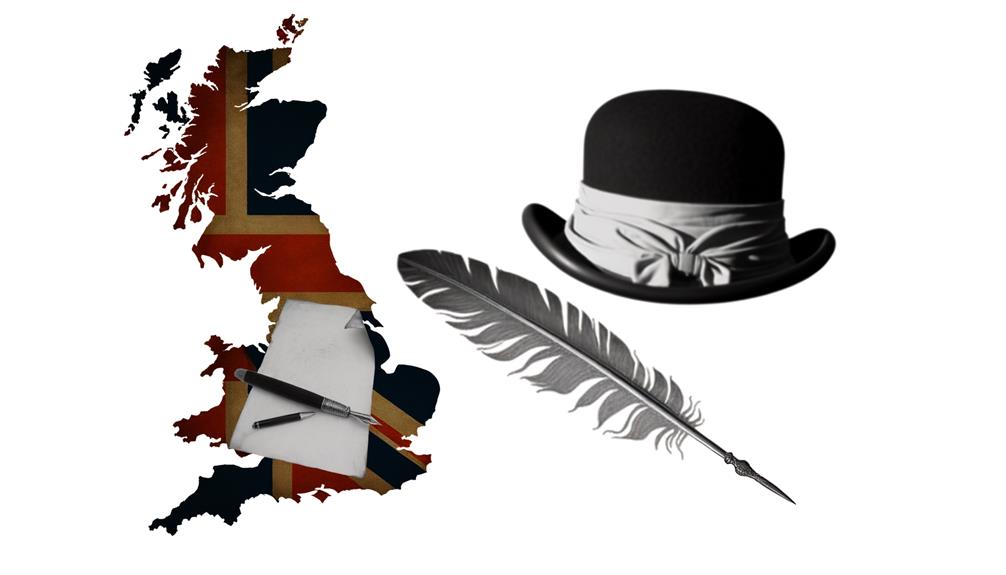
The term 'nob' in British slang traces its etymology to the late 17th century, originally denoting a person of high social status or wealth. As you explore its origins, you'll find that its roots are deeply entwined with nobility connections, highlighting a societal structure that was rigidly divided by class. This linguistic artifact serves as a window into the social hierarchies of the time, revealing how language evolves in tandem with cultural shifts.
Understanding the linguistic evolution of 'nob' requires examining its adaptation over centuries. Initially, it was a term of respect, indicating a person's elevated position within society. However, as the social fabric began to change, so did the connotations associated with 'nob.' It transformed, reflecting more nuanced social dynamics and, at times, adopting a more colloquial or even derogatory tone depending on context.
The shift from a straightforward descriptor of nobility to a more complex term encapsulates the fluid nature of language. This evolution mirrors societal changes, including shifts in attitudes towards class and wealth. As the distinctions between classes became more permeable, the language used to describe individuals of different social standings also adapted.
In dissecting the origins of 'nob,' you're not just tracing a word's history but also uncovering the social undercurrents that influenced its journey. The nobility connections inherent in its origins provide a foundation for understanding its subsequent linguistic evolution, marking it as a reflection of the intertwined nature of language and society.
Definitions and Meanings
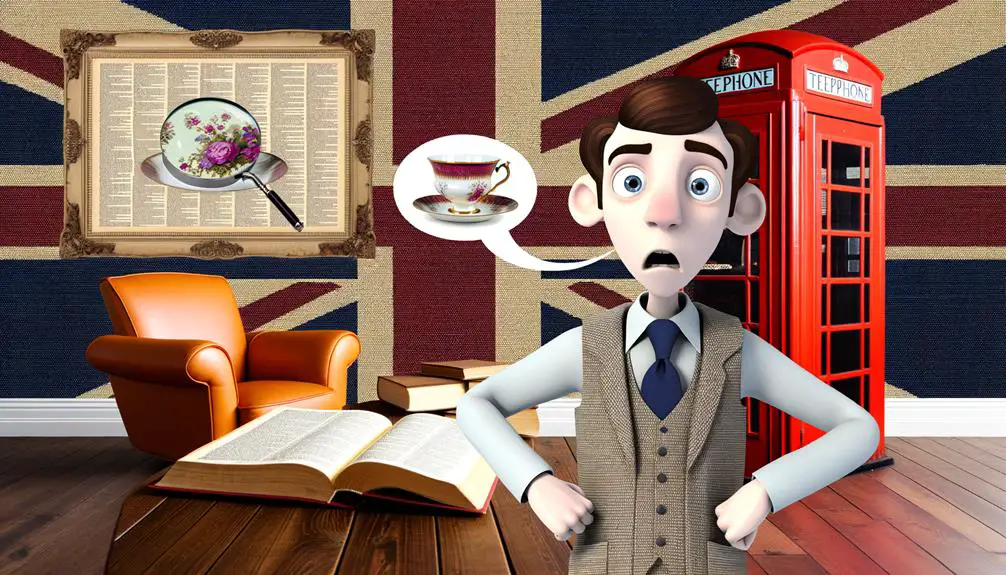
You've followed the etymology of 'nob' in its historical context; now, it's crucial to explore its definitions and meanings within contemporary British slang.
The progression from its origin to modern usage reveals shifts in societal attitudes and language evolution.
"Nob" Origin Insights
Delving into the origins of 'nob' in British slang reveals a rich tapestry of linguistic evolution and socio-cultural influences. This term, deeply embedded in the English vernacular, showcases the dynamic interplay between language and society.
Its etymology is a proof to the fluid nature of slang, evolving from historical contexts to acquire distinct meanings and connotations over time. The cultural impact of 'nob' can't be understated; it reflects changing social attitudes, power dynamics, and class distinctions.
This linguistic element serves as a mirror to societal shifts, embodying the essence of cultural adaptation and the continuous shaping of collective identity. Through its journey, 'nob' illustrates the intricate relationship between words, their origins, and the societal fabric they influence.
Modern Usage Examples
In today's vernacular, 'nob' has evolved to encompass a range of meanings, each reflecting distinct aspects of contemporary British society. The term's flexibility in usage and nob pronunciation have sparked discussions and even controversies. Below is a succinct overview of its modern applications:
| Usage Context | Meaning | Controversies |
|---|---|---|
| Social Status | An upper-class individual, often implied to be pretentious or out of touch. | Class sensitivity |
| Insult | A derogatory term for someone acting foolishly or offensively. | Acceptability in public discourse |
| Anatomy | Slang for male genitalia. | Appropriateness in mixed company |
| Endearment | Occasionally used among friends in jest. | Misinterpretation potential |
This table demonstrates the term's nuanced application, revealing its adaptability in reflecting societal norms and tensions.
Usage in British Society
Understanding the term 'nob' requires examining its nuanced roles within British society, where it's employed to convey a range of social standings and attitudes. At its core, 'nob' reflects a complex interplay within the nob hierarchy, underscoring not only one's position in the social ladder but also the behavioural expectations and cultural implications tied to such standings. The term, often laced with irony and critique, serves as a lens through which the intricacies of British class distinctions and social dynamics are both revealed and perpetuated.
In analyzing its usage, you'll find that 'nob' can oscillate between a term of endearment and a scathing critique, depending largely on context, tone, and the relationship between the speaker and the subject. This duality highlights the term's versatility but also underscores the cultural implications of language as a tool for social commentary. Within the framework of British society, where class consciousness pervades, 'nob' encapsulates the ongoing dialogue around social mobility, class barriers, and the often satirical examination of the upper echelons of society.
Moreover, the employment of 'nob' in everyday discourse signals a collective reckoning with the ideals of propriety, respectability, and the quintessential British stiff upper lip. It's a linguistic nod to the complexities of navigating social hierarchies, where humor and derision intermingle, reflecting broader societal attitudes towards class and status. Through its multifaceted use, 'nob' not only enriches the tapestry of British slang but also serves as a barometer for shifting social values and perspectives.
Variations and Related Terms
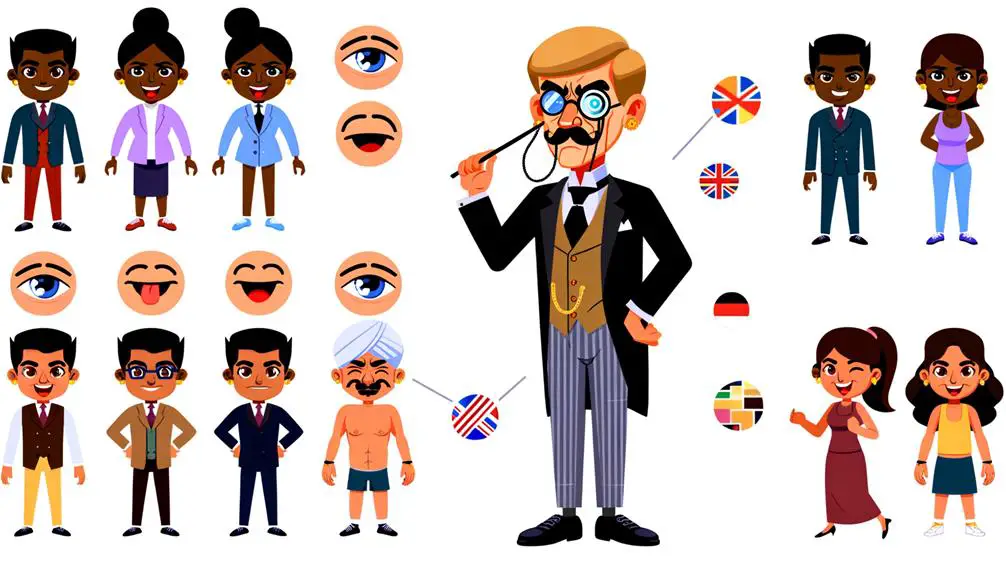
As you delve into the evolution of 'nob' within British slang, it's crucial to trace its origins, grasp its common usage today, and identify how it aligns or diverges from similar expressions.
This journey not only illuminates the linguistic flexibility of 'nob' but also demonstrates its enduring presence in contemporary vernacular.
Origins of "Nob"
Exploring the origins of 'nob' reveals its evolution from early English slang, encapsulating variations and related terms that enrich its historical context.
The nob etymology is deeply rooted in the linguistic evolution of British English, tracing back to the 17th century. Initially, 'nob' derived from the older term 'knob', which meant a head or a top. Over time, its usage expanded, reflecting social hierarchies and statuses, particularly among the British upper classes.
This historical journey from a simple physical descriptor to a term laden with social connotations exemplifies the dynamic nature of language. Understanding 'nob' within this framework allows you to appreciate the complexity and adaptability of slang, as it intertwines with cultural shifts and societal structures.
Common Usage Today
Building upon its rich historical background, the term 'nob' now manifests in contemporary British slang with diverse meanings and associations, reflecting its sustained relevance in everyday language. Its usage spans various contexts, from playful banter to pointed insult, demonstrating its adaptability and enduring popularity.
You'll find that regional variations notably influence its interpretation. In some areas, it's a lighthearted jest among friends, while in others, it carries a sharper edge.
International perceptions of 'nob' further complicate its modern usage. Outsiders may misinterpret or overlook the nuanced connotations that native speakers understand instinctively. This disparity underscores the term's complexity and the importance of cultural context in grasping its full significance.
Therefore, 'nob' remains a multifaceted term, rooted in tradition yet vibrant and evolving in the lexicon of today.
Similar Slang Expressions
Exploring the world of British slang reveals that 'nob' is but one of many expressions, each with its unique nuances and historical roots. This linguistic landscape is profoundly shaped by regional dialects, illustrating the rich tapestry of linguistic evolution across the UK.
Terms akin to 'nob', such as 'git' or 'muppet', similarly convey disdain but vary subtly in connotation and usage, highlighting the precision with which speakers employ slang to navigate social interactions. These variations are evidence to the dynamic nature of language, constantly adapting to shifts in cultural norms and societal values.
Understanding these expressions requires not only a grasp of their literal meanings but also an appreciation for the cultural and historical contexts from which they emerge, showcasing the intricate relationship between language and identity.
'Nob' in Popular Culture
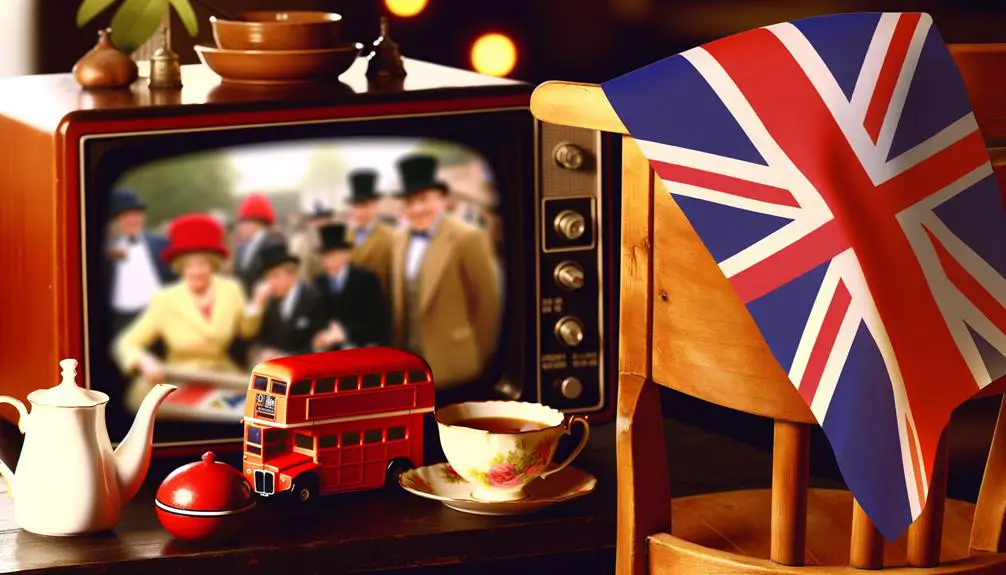
In analyzing the impact of British slang, one finds that the term 'nob' has permeated popular culture, manifesting in various media and public discourse. This infiltration is particularly evident in music references and celebrity endorsements, which have greatly contributed to the globalization and understanding of the term outside the United Kingdom.
Music, as a universal language, often serves as a vehicle for the dissemination of slang. British musicians, embedding 'nob' within their lyrics, have played a pivotal role in exporting this piece of vernacular. The casual listener, initially unfamiliar, becomes intrigued, leading to a deeper exploration of its meanings and nuances. This process not only amplifies the term's reach but also embeds it within the listener's vocabulary, further normalizing its usage.
Celebrity endorsements, on the other hand, have provided 'nob' with a platform of legitimacy and coolness. When public figures use slang in interviews, social media, or even in their creative work, they inadvertently endorse its usage. Their broad influence means that what might once have been considered niche or regional expressions quickly become part of a global dialogue. The term 'nob,' through these endorsements, shifts from being seen as crude or colloquial to a recognized and sometimes celebrated part of language.
This cultural diffusion underscores the dynamic nature of language and its ability to evolve through various forms of media. As 'nob' continues to be featured in music and championed by celebrities, its acceptance and understanding are likely to grow, further cementing its place in not just British, but global popular culture.
Etiquette and Acceptability
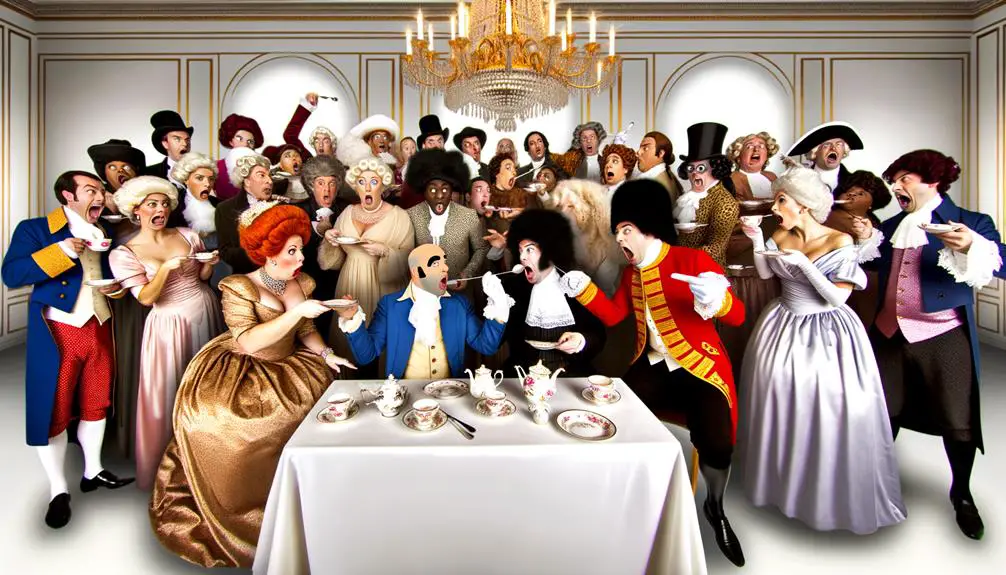
Despite its integration into global popular culture, the acceptability of the term 'nob' varies widely across different social contexts and settings. It's essential you're aware of the nuances and implications this word carries, as its use can either be seen as harmless banter or deeply disrespectful, depending on the audience and setting. The term, deeply rooted in British slang, carries with it not only a colloquial humor but also a historical baggage of class distinctions.
When moving through social contexts, consider the following:
- Audience Sensitivity: The age, background, and social class of your audience play a significant role in how the term is received. Among peers who share a common understanding and comfort with British slang, 'nob' might be taken lightly. However, in more formal or mixed settings, its usage could be deemed inappropriate.
- Environment and Importance: Informal settings among close friends often allow for a broader range of language, while professional or public settings demand a more restrained approach. The term's acceptability is inversely proportional to the formality of the setting.
- Cultural Awareness: Understanding the historical and cultural connotations of 'nob', especially its ties to class distinctions, is essential. Misuse can inadvertently perpetuate stereotypes or offend those sensitive to class-based issues.
Frequently Asked Questions
How Has the Perception of the Term 'Nob' Evolved Among Different Age Groups Within the UK Over the Past Few Decades?
You've noticed that the term's perception has shifted across generations within the UK, reflecting broader cultural shifts and the fluid nature of generational slang.
Younger groups may use it more playfully or ironically, while older generations could view it with more disdain or seriousness.
This evolution underscores the dynamic interaction between language, culture, and age, revealing how societal changes are mirrored in the evolving connotations of slang terms like this one.
Are There Any Notable Legal Cases or Controversies in the UK Where the Use of the Word 'Nob' Played a Significant Role?
You're exploring the intricate landscape of language, where words like 'nob' can ignite legal battles and cultural shifts. Legal implications of its use have occasionally emerged, reflecting society's evolving norms.
While no major cases come to the forefront, the term's role in controversies underscores the power of language. This analysis delves into how linguistic expressions carry weight, uncovering legal narratives and highlighting the dynamic interplay between speech and societal values.
How Do Non-Native English Speakers Residing in the UK Perceive and Interpret the Term 'Nob' Compared to Native Speakers?
You might find that non-native English speakers residing in the UK experience a blend of language adaptation and cultural confusion when interpreting the term 'nob.'
Unlike native speakers who understand its nuances and context, you may struggle to fully comprehend its slang connotations, leading to misunderstandings.
Your adaptation to British slang involves exploring these linguistic subtleties, which requires time and social immersion to appreciate the term's usage and underlying cultural implications fully.
Can the Use of the Word 'Nob' in Digital Communication (Texts, Social Media) Convey Different Nuances or Levels of Offense Than in Verbal Communication?
In digital communication, you'll find that a word's sting can vary greatly.
'A picture is worth a thousand words,' and so emoticon implications alongside the term 'nob' can soften or sharpen its impact. Your cultural sensitivity plays an important role in decoding these nuances.
Texts and social media strip away tone and context, often leaving you to interpret based on your understanding, which mightn't align with the sender's intent.
What Impact Has Globalization and the Influence of American English Had on the Usage and Perception of the Term 'Nob' in British English?
You've noticed globalization and American English's influence on British English, especially concerning terms like 'nob'. This cultural assimilation impacts linguistic diversity, subtly shifting the word's usage and perception.
While 'nob' retains its distinct British flavor, American English introduces nuances that either dilute or intensify its meaning. Analyzing this evolution reveals how languages blend and adapt, reflecting broader societal changes.
It's a fascinating example of linguistic interplay in a globalized world.
Conclusion
To sum up, you've wandered through the linguistic labyrinth of 'nob', unveiling its noble origins and strolling through its various uses in the grand stage of British society.
You've observed how this term, once possibly the pinnacle of sophistication, has waltzed into the world of playful banter. Picture, if you may, a top-hat wearing, monocle-clad 'nob', now appearing in sitcoms and street jargon.
This journey highlights the delightful irony of language evolution, where even the most elevated of words can eventually find themselves playing in the realm of colloquialism.







